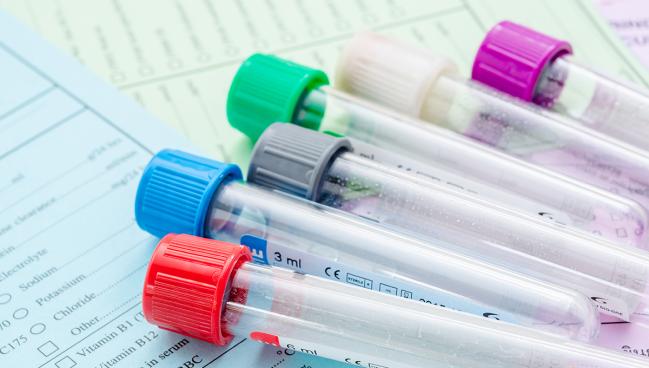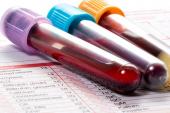Effect of Intensive BP-Lowering on Cardiac Biomarkers Varies: SPRINT Analysis
A modest increase in troponin was almost entirely mediated by worsening renal function.

For nondiabetic patients with hypertension and a high cardiovascular risk, intensive lowering of blood pressure is associated with an expected drop in NT-proBNP but also a modest increase in high-sensitivity cardiac troponin T (hs-cTnT), according to an analysis of the SPRINT trial.
The latter relationship was unexpected considering the improvement in major adverse outcomes seen with treating to a systolic BP goal of < 120 mm Hg versus < 140 mm Hg in the overall trial, and was almost entirely mediated by a worsening of estimated glomerular filtration rate (eGFR), researchers led by Jarett Berry, MD (University of Texas at Tyler School of Medicine), report in a study published online this week in Circulation.
Of note, changes in both cardiac biomarkers over the first year of follow-up were strongly associated with risks of all-cause mortality and adverse cardiovascular outcomes, particularly heart failure, regardless of whether patients were assigned to intensive or conventional BP control.
To TCTMD, Berry stressed that the troponin rise in response to intensive treatment was “pretty trivial,” though he acknowledged that “we were shocked by those results.”
Nonetheless, what can be taken away from the small change in troponin—that was linked to a reduction in renal filtration, a phenomenon previously shown to occur with BP-lowering—is that “troponin’s not a great marker of treatment response,” he said. “NT-proBNP at the end of this analysis looks like a better marker very sensitive to change in systolic blood pressure.”
I do think that moving forward this provides some clarity about the relevance of NT-proBNP and perhaps the irrelevance of troponin in this particular context. Jarett Berry
A previous study by Berry’s group indicated that SPRINT participants with increased levels of NT-proBNP and hs-cTnT at baseline had the most to gain from intensive BP control, but the impact of aiming for lower BP goals on longitudinal changes in these biomarkers, as well as the relationships between changes over time and clinical outcomes, had not been studied.
Biomarker Relevance
The investigators explored those questions in the current analysis, which examined biomarker levels at baseline and 1 year in stored samples taken from SPRINT participants.
After accounting for baseline levels and other factors, randomization to intensive versus standard BP control was associated with a 3% increase in hs-cTnT levels over the first year (geometric mean ratio 1.03; P < 0.001), along with greater odds of having at least a 50% bump in levels (OR 1.47; 95% CI 1.13-1.90). The modest rise in troponin associated with intensive treatment disappeared, however, after adjusting for changes in eGFR.
As would be expected, intensive BP control was associated with a 10% decline in NT-proBNP levels (geometric mean ratio 0.90; P < 0.001) and lower odds of having at least a 50% increase in levels (OR 0.57; 95% CI 0.46-0.72). The fall in NT-proBNP was tightly linked to the reduction in systolic BP achieved with intensive control.
Regardless of randomization group, patients who had increases in either biomarker through the first year of follow-up had heightened risks of cardiovascular events and mortality, consistent with prior research demonstrating the prognostic value of NT-proBNP and hs-cTnT.
Asked whether the small increase in troponin in response to intensive therapy, even though it’s mediated by a fall in eGFR, raises any concerns about the safety of the BP control strategy, Berry said it doesn’t, pointing to the improvement in mortality and cardiovascular outcomes achieved by aiming for the lower BP target in the trial. “The findings in SPRINT obviously stand irrespective of what happens from the biomarker standpoint,” he said. Instead, he added, “it tells us that our ability to find an intermediate phenotype to monitor response to treatment is challenging.”
These findings have implications for future research into markers associated with response to BP-lowering, he pointed out. “I do think that moving forward this provides some clarity about the relevance of NT-proBNP and perhaps the irrelevance of troponin in this particular context.”
Todd Neale is the Associate News Editor for TCTMD and a Senior Medical Journalist. He got his start in journalism at …
Read Full BioSources
Berry JD, Chen H, Nambi V, et al. Effect of intensive blood pressure control on troponin and natriuretic peptide levels: findings from SPRINT. Circulation. 2022;Epub ahead of print.
Disclosures
- This ancillary study was supported by the National Heart, Lung, and Blood Institute, the National Institute of Diabetes and Digestive and Kidney Diseases, and the American Heart Association. Analytical reagents for high-sensitivity cardiac troponin T and NT-proBNP measurements were donated by Roche.
- Berry reports receiving grant support from the National Institutes of Health, Roche Diagnostics, and Abbott Diagnostics and consulting fees from Roche Diagnostics, AstraZeneca, and the Cooper Institute.




Comments